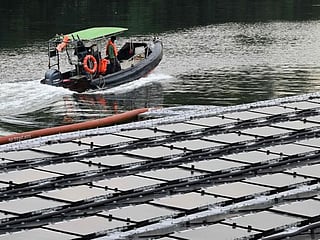Bring back the 'do nothing' days to your life
Global corporates like Google are telling their staff to do so - and they are right

At Google, they refer to it as ‘Do Nothing’ days. Others call it ‘Mental Break’ days.
After introducing it at the workplace, the term has been changed by the team to ‘Do Not Disturb’ days, or DNDs in short. While my personal preference is for a term that insinuates that this is a day when you get to do nothing and to give your brain a break from all mentally demanding work tasks, the culture at the workplace adopted it to what they needed.
That is, to not be disturbed. When the day was first introduced - as once a month but with additional allocations based on performance - the intention was for it to be a day when you do not show up at work and you go do something completely different to take your mind off work.
It being changed into a DND day could mean one of two things. Either that the team is still not ready for a ‘Do Nothing’ day, or that what they truly need is to have a day when they do not get bothered by work calls, texts, and emails.
Total disconnect
Let’s start with the second point. What this really means is that it is extremely hard to disengage from work after working hours or over weekends. This is despite the fact that there is an implicit rule of no work emails and texts over weekends, unless there is something as urgent as a Third World War breaking out, oil contracts dropping below $0, or a pandemic that brings aviation and tourism to a standstill.
Otherwise, no one is expecting the team to check their mailboxes over weekends. Not only that, but when there is something urgent with a tight deadline, it is communicated clearly and early enough that there may be need for work to be done over the weekend.
Bottom-line here is that other than the above-mentioned Black Swan events, there is no reason to keep refreshing that work mailbox over the weekend - or every five minutes.
Extreme measures
To get around this and to have weekends to myself, I took this a step further by deleting the work email app from my smartphone. Even though I did this to completely disconnect from work on a recent fishing trip out of town, I never downloaded it again.
I also made it clear that I only check my email three times a day, with 5pm as my cut-off time. Doing so allowed me to realise that it does not take more than 10-15 minutes to clear my mailbox and to action whatever non-life-threatening emails that need to be actioned. Added to that, I now switch the airplane mode on my smartphone at least an hour before bedtime.
The expectation should be set right here if one is to be able to disconnect and to disengage from work. After all, no one is supposed to email a time-sensitive work matter. Neither are you supposed to have work disturbing your rest during normal sleeping hours.
Going back to the first point, it is this inability to disconnect from work, even when we seriously need to, that we cannot imagine a day in a week or in a month when we do absolutely nothing. The main purpose of such days is to allow the mind to wander off, and to start thinking about bigger, more interesting ideas that being too engaged with day-to-day work activity prevents us from doing.
To conclude, a DND day is a first step towards mastering the skill of switching one’s work mode on and off. Be it by deleting the work email app, setting aside time slots to check email, or by using airplane mode, the main goal is to be able to disconnect from work at will and to do nothing.
The last thought that I want to leave you with: When was your last ‘do nothing’ day?










